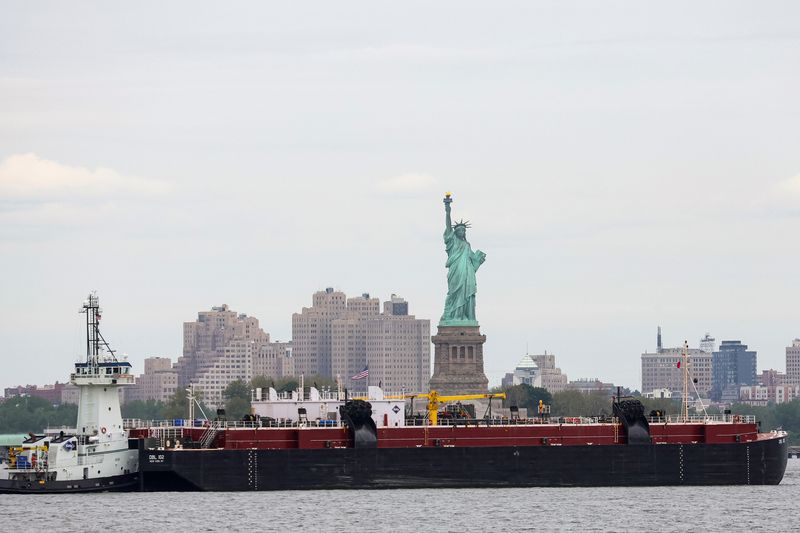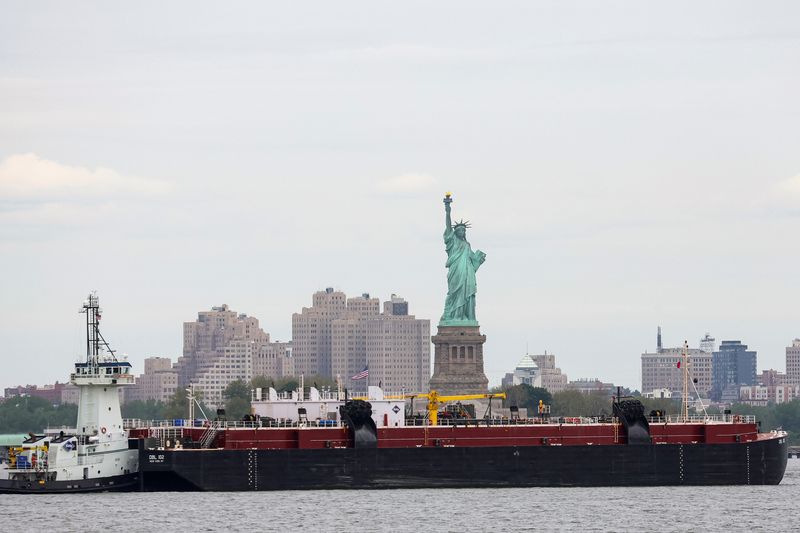Commodities
Oil prices rise on China stimulus amid Mideast ceasefire push

By Ron Bousso
LONDON (Reuters) -Oil prices rose to $75 a barrel on Tuesday, extending gains from the previous session as investors weighed the impact of China’s stimulus measures to boost its economy, and concerns over tension in the Middle East persisted.
futures for December delivery rose 68 cents, or 0.92%, to $74.97 at 1033 GMT. U.S. West Texas Intermediate crude futures for November delivery were up 66 cents at $71.22 a barrel on the contract’s last day as the front month.
The more actively traded WTI futures for December delivery, which will soon become the front month, rose 70 cents, or 1%, to $70.74 per barrel.
Both Brent and WTI rose nearly 2% on Monday, recouping some of last week’s more than 7% decline, with no letup of fighting in the Middle East and the market nervous that Israel’s expected retaliation against Iran could disrupt oil supply.
U.S. Secretary of State Antony Blinken arrived in Israel on Tuesday, the first stop on a Middle East tour in which he will seek to revive talks to end the Gaza war and contain the spillover conflict in Lebanon.
“Crude oil prices have been fluctuating in response to mixed news from the Middle East, as the situation alternates between escalation and de-escalation,” said Satoru Yoshida, a commodity analyst at Rakuten Securities.
The market continued to weigh the implications for fuel demand of China’s stimulus measures and increased U.S. economic activity, he added
Beijing on Monday cut benchmark lending rates as part of stimulus measures to revive the economy as data last week showed it had grown at the slowest pace since early 2023 in the third quarter.
China’s oil demand growth is expected to remain weak in 2025 as the world’s No. 2 economy electrifies its car fleet and grows at a slower pace, the head of the International Energy Agency said on Monday.

Still, Saudi Aramco (TADAWUL:) is “fairly bullish” on China’s oil demand especially in light of the government’s stimulus package which aims to boost growth, the head of the state-owned Saudi oil giant said on Monday.
oil stockpiles likely rose last week, while distillate and gasoline inventories were seen down, a preliminary Reuters poll showed.
Commodities
Oil prices rise; U.S. crude inventories plunge, Russia-Ukraine truce eyed
Commodities
India’s Reliance to stop buying Venezuelan oil over US tariffs, sources say
Commodities
Oil prices climb on Venezuela supply worries

 Forex3 years ago
Forex3 years agoForex Today: the dollar is gaining strength amid gloomy sentiment at the start of the Fed’s week

 Forex3 years ago
Forex3 years agoUnbiased review of Pocket Option broker

 Forex3 years ago
Forex3 years agoDollar to pound sterling exchange rate today: Pound plummeted to its lowest since 1985

 Forex3 years ago
Forex3 years agoHow is the Australian dollar doing today?

 Cryptocurrency3 years ago
Cryptocurrency3 years agoWhat happened in the crypto market – current events today

 World3 years ago
World3 years agoWhy are modern video games an art form?

 Commodities3 years ago
Commodities3 years agoCopper continues to fall in price on expectations of lower demand in China

 Economy3 years ago
Economy3 years agoCrude oil tankers double in price due to EU anti-Russian sanctions



























